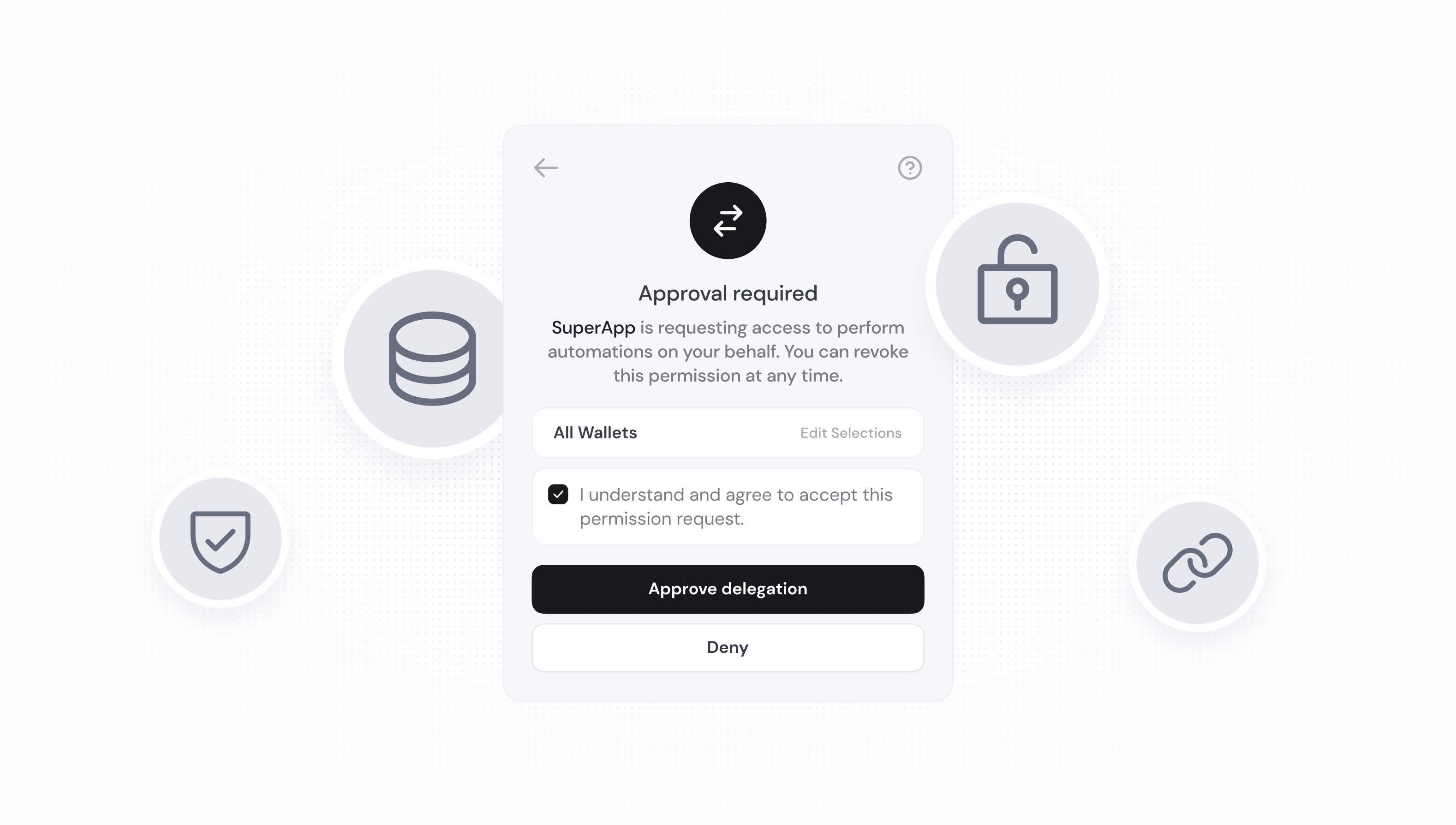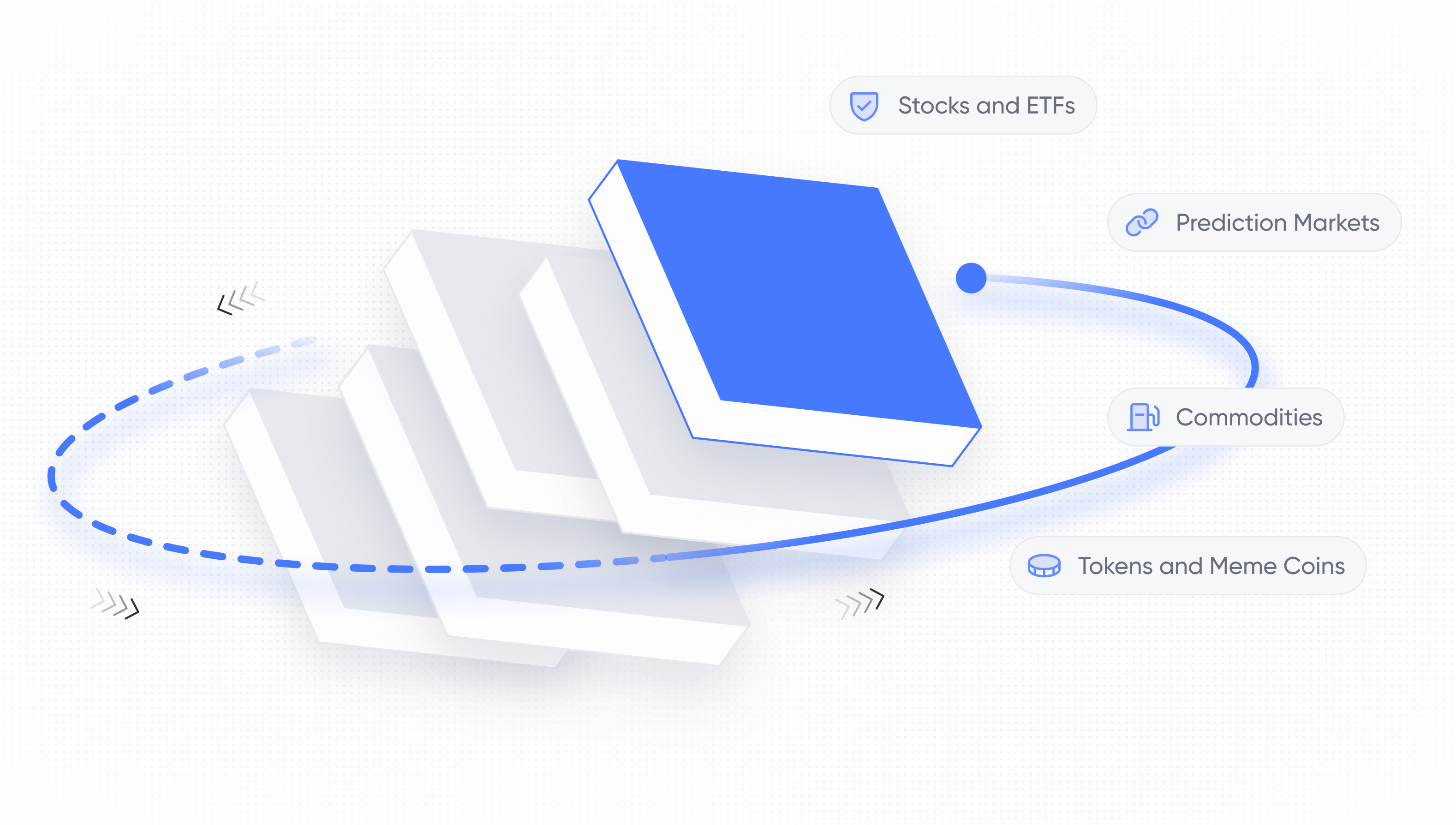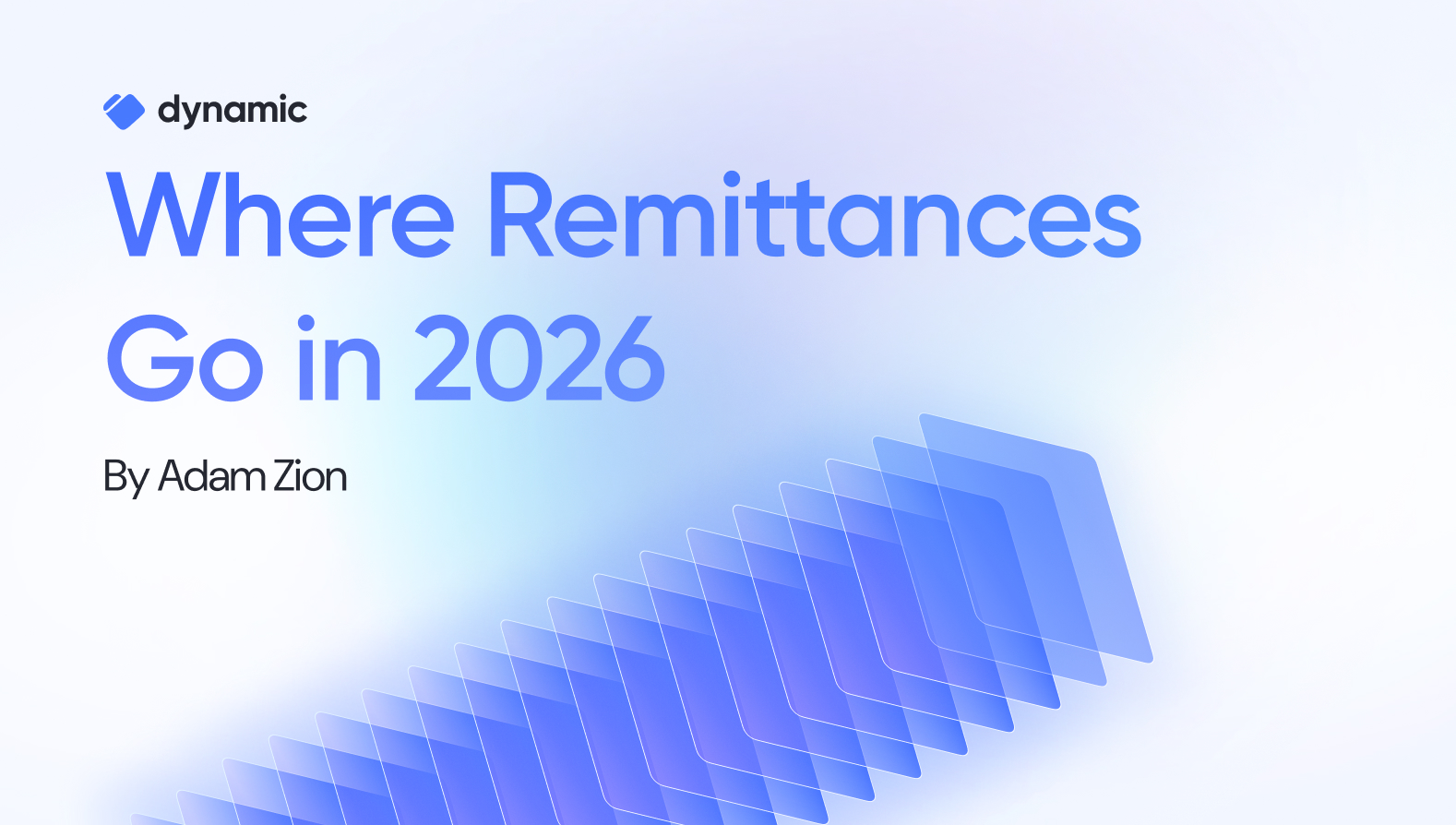Introducing Delegated Access: Fueling Automated Commerce and Agentic Finance


Making Fintechs, Agents, and Apps Move Faster with Delegated Access
Finance runs on automation, but crypto doesn’t. That ends today.
Delegated Access unlocks a new era where apps act, money moves, and systems operate without pause. Safe, transparent, and instant. The way finance should be.
Modern finance already runs this way. Salaries arrive on schedule, investments rebalance in the background, and payments clear without a second thought. Businesses and consumers expect systems to move on their own. But in crypto, financial workflows still depend on manual approvals and human coordination.
While programmable money made assets smarter, it did not make them autonomous. The tools to move value automatically, within clear and trusted limits, have been missing. Delegated Access changes that. It brings automation and accountability together so crypto can finally operate with the reliability, speed, and intelligence of modern finance.
Crypto Has Programmable Money, But Not Autonomous Systems
Crypto has made money programmable, but not automatic. The rails exist, but most systems still rely on constant human input to keep operations moving. The real limitation is not technical, it’s structural. There has been no shared framework for trust, one that allows automation to happen safely and predictably.
Delegated Access introduces that foundation. It provides a trusted permission layer where applications can act intelligently within clear boundaries, while users retain full control and visibility. It turns programmable money into programmable action, allowing crypto to operate with the same reliability, trust, and speed that define modern finance.
How Delegated Access Works
Delegated Access lets a developer request a wallet share from a user or business wallet to automate activities on their behalf. The developer can then assist users and businesses by performing automated signatures using this wallet share. A user can revoke this permission at any time.
Dynamic’s embedded wallet stack uses TSS-MPC, such that a share is not an actual piece of the private key (or an API key that has direct root access to a securely stored private key).
Delegated Access builds on this foundation and establishes a framework of safe automation built on four principles of control and clarity:
- Explicit consent: Users choose which services to trust and define exactly what actions they can perform.
- Continuous visibility: Users and administrators can track activity in real time across systems and teams.
- Instant revocation: Permissions can be withdrawn immediately, restoring full control.
- Configurable security: Built on MPC, with flexible thresholds like 2/2 or 3/5 that can be rotated or adjusted without relying on any single signing key.
Additional technical note: Developers can see all events, changes and requests; and gate access across all of their developers using secure auth tools such as SSO.
Unlocking Continuous Financial Flows
Delegated Access is already powering automation across the workflows that move the most value. Developers are building systems that run continuously, manage risk automatically, and operate with full transparency. Below are just a few of the many ways of how Delegated Access simplifies automation for systems that demand trust and precision.
Payments and Stablecoin Transfers
Let funds move on recurring schedules or when certain conditions are met. Transfers remain transparent, bounded, and revocable at any time.
Subscriptions and Remittances
Automate recurring transfers or international payouts while keeping full visibility and the ability to pause or modify terms instantly.
Trading and Portfolio Management
Enable strategies to run automatically within defined parameters. Agents can monitor markets, rebalance portfolios, or execute rules without constant oversight.
Payroll and Reimbursements
Run global payroll onchain with predictable cycles, automatic deductions, and audit-ready reporting. Updates to limits or policies take effect immediately.
Staking and Liquidity Management
Delegate control of staking and liquidity operations so systems can restake, reallocate, or rebalance efficiently while maintaining security and transparency.
The Foundation for Agentic Finance
Delegated Access is the foundation for agentic finance, where money moves with intent and applications act responsibly within trusted boundaries. It is the natural next step after programmable money: programmable action.
Just as sending an email became effortless and instant, moving value across the internet will soon be second nature. Delegated Access makes that reality possible.
This is not a distant future. It is the infrastructure that allows intelligent agents and automated systems to operate safely today.
Delegated Access is Now Available
Delegated Access is available today for teams building products that require automation with accountability. Whether powering stablecoin payments, trading agents, or global operations, Dynamic makes it possible to move from prototype to production with automation built on consent, security, and control.
FAQs
Q: What problem does Delegated Access solve?
Crypto has lacked a safe way to automate. Businesses have been forced to choose between control and convenience, often compromising one for the other. Delegated Access eliminates that tradeoff by introducing a trusted automation layer that maintains both security and autonomy.
Q: How does it work?
Delegated Access lets users and organizations delegate permission to applications within defined limits. Every action is transparent, governed by user consent, and revocable at any time. The system combines MPC-based security with permission logic that keeps automation safe and predictable.
Q: Why is this important for businesses?
Most crypto systems still rely on manual operations, which slows growth and creates operational risk. Delegated Access enables continuous workflows for payments, settlements, trading, and compliance, allowing businesses to scale without compromising oversight or trust.
Q: How does it benefit fintechs entering crypto?
Fintechs can now extend their automation capabilities to blockchain-based products without rebuilding their infrastructure from scratch. Delegated Access lets them offer crypto experiences that match the reliability and control users already expect from modern finance.
Q: What are the first use cases you are seeing?
Early adopters are using Delegated Access for automated trading agents, cross-border payroll, and recurring payments. These early systems show how permissioned automation can create new revenue models and streamline operations across global teams.
Q: How is this different from existing automation tools?
Other approaches force a tradeoff between safety and flexibility. Delegated Access is designed to balance both. It uses a shared permission layer that is visible, revocable, and built for collaboration across teams and systems.
Q: Why does this matter now?
Automation has become the standard for how money moves. Stablecoins are scaling globally, and agentic systems are beginning to handle financial operations autonomously. Delegated Access gives developers and businesses the infrastructure they need to operate in that reality securely and at scale.
Share this article



